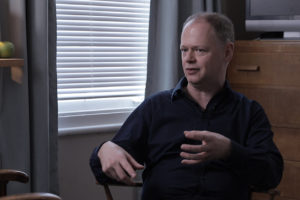Animals and Human Communication
Linguist David Adger on sound processing in animals, bonobo Kanzi and the nature of linguistic differences bet...
What was the motivation that led linguists to start doing experiments with large groups of people? Is there any distinction in the processing of syntactical structures between speakers of different languages? Harvard University Professor of Linguistics Maria Polinsky speaks about traditionally grammatically incorrect sentences and how people actually talk.
Linguists often have judgments, which are very different from the rest of the people. There was a study, where a researcher in England took a lot of sentences, which are used in linguistic textbooks and asked a bunch of janitors, a bunch of undergrads and then a bunch of academics in the UK, whether they like those sentences or not. Turned out that the academics were okay, but the janitors and the undergrads completely rejected a lot of the material, which used to be a bread-and-butter of theoretical linguistics. So all these observations led to the conclusion that we need to get outside of our studies and stop thinking deep thoughts and asking your friends, but try to establish more experimentally-based investigations, where the data would come from large groups of speakers.
There’re some explanations, which actually take us away from structure and to illustrate that let me go back to this case of resumption that is “this is the man that when the police arrested him everyone was happy”. So every English grammar book says that’s bad, people say that a lot and there have been quite a few linguistic theories, which are very, very complicated, but basically they indicate that this resumptive pronoun “him” in “this is the man that when the police arrested him”, this resumptive pronoun is there, because it’s needed to show that something has been taken out of its initial position and put into a different position.
The first frontier that we will get to next is figuring out how language is processed in the brain and this is where experimental approaches to language have to be very important. Every language has relative clause, so it’s been extremely important for experimental work and this is the area, where people have started looking at linguistic representation in the brain. So you give a speaker of Japanese or a speaker of Russian or a speakers of Spanish two sentences: one is “this the man who wrote the book” and the other is “this is the book that the men wrote” and see whether or not their brain responses are different.

Linguist David Adger on sound processing in animals, bonobo Kanzi and the nature of linguistic differences bet...

Neuroscientist Sophie Scott on humans’ ability to distinguish sounds, bilingualism, and the Japanese language

Psychologist Ellen Bialystok on simultaneous learning of different writing systems, cognitive reserve, and mul...